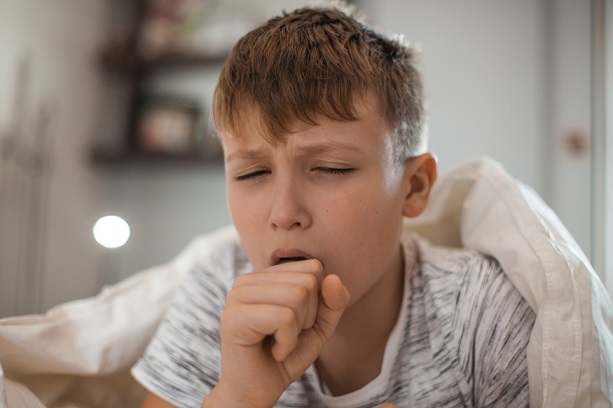Nikhil Prasad Fact checked by:Thailand Medical News Team Nov 13, 2025 3 months, 1 week, 3 days, 17 hours, 4 minutes ago
Medical News: Record High Cases Raise Urgent Alarms
Texas is grappling with an alarming rise in whooping cough cases, marking one of the most significant spikes seen in more than a decade. According to new data from the Texas Department of State Health Services (DSHS), more than 3,500 cases have already been reported this year, far surpassing previous records and placing public health officials on high alert. Early figures reveal that roughly 85 percent of these cases are occurring in children, underscoring growing concerns about community transmission and gaps in vaccination coverage.
 Texas Whooping Cough Surge Sparks New Public Health Concerns
A Rapidly Escalating Situation
Texas Whooping Cough Surge Sparks New Public Health Concerns
A Rapidly Escalating Situation
The latest state health alert shows that reported infections have increased fourfold compared to October 2024. This comes after Texas recorded approximately 340 cases in 2023, which then surged to nearly 1,907 cases in 2024. This upward trend has now continued into 2025, prompting repeated statewide advisories. Though experts are still investigating the underlying causes, factors such as waning immunity, reduced vaccination uptake, and increased social mixing may be contributing to the rise. According to this
Medical News report state authorities have emphasized that the pattern is unusual and still not fully understood.
Understanding Whooping Cough
Whooping cough, medically known as pertussis, is an infection caused by the bacterium Bordetella pertussis. It is extremely contagious, spreading easily through sneezing, coughing, or close contact. The disease gets its name from the distinctive “whoop” sound that individuals—especially children—make when gasping for air between violent coughing fits.
In the early phase, symptoms can look like a harmless cold. Patients may experience a runny nose, mild fever, or a slight cough. However, within one to two weeks, the illness progresses into severe and repeated coughing episodes. For adults, these fits may induce vomiting, while infants often show more dangerous signs such as gagging, turning blue, or temporarily stopping breathing.
Preventing and Managing the Illness
Health officials stress that vaccination remains the strongest defense. While immunization does not guarantee full protection, it significantly reduces the severity of the disease and lowers the risk of serious complications. Early diagnosis and treatment with antibiotics are also critical to prevent widespread transmission. Individuals suspected of having pertussis are urged to stay home from work, school, and public places until they have completed at least five days of antibiotic therapy.
Whooping cough poses the greatest risk to babies, young children, and pregnant women, who may face complications such as pneumonia, seizures, or hospitalization if infected.
Growing Concerns for Public Health
The continuing surge in cases highlights the importance of sustained vaccination programs, timely medical care, and strong public
awareness. As Texas confronts another year of rising pertussis infections, health officials warn that proactive community measures are essential to prevent further spread. Protecting vulnerable groups, ensuring prompt detection, and maintaining high immunization rates will be crucial to controlling this expanding public health challenge.
Reference:
https://www.dshs.texas.gov/news-alerts/health-alert-increase-pertussis-cases-texas
For the latest on the whooping cough surge in Texas, keep on logging to Thailand
Medical News.
Read Also:
https://www.thailandmedical.news/news/forget-about-bordetella-pertussis-india-experiencing-a-surge-of-respiratory-infections-caused-by-bordetella-holmesii
https://www.thailandmedical.news/news/australian-medical-researchers-warn-that--whooping-cough-bacteria-evolving-into-a-superbug
